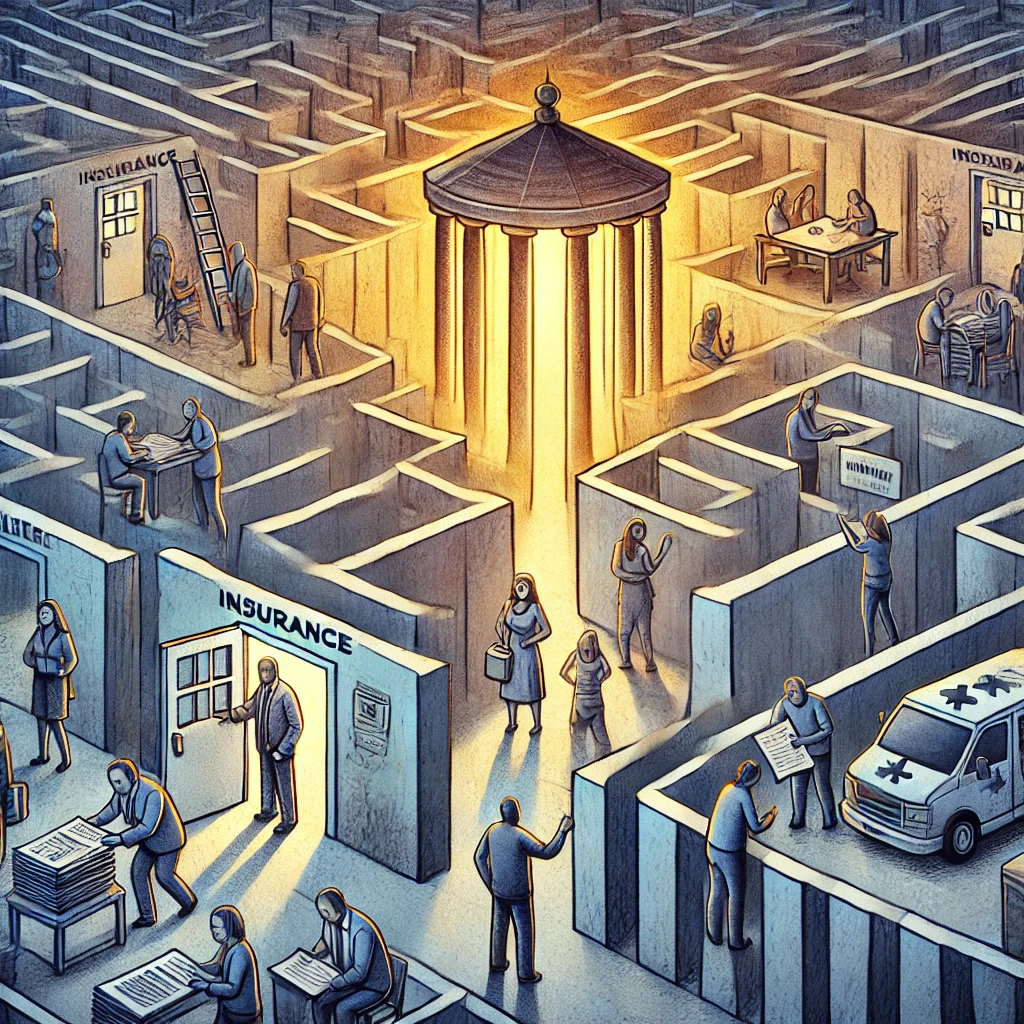Insurance, for many, is often seen as a ticket to accessible healthcare—a privilege that opens doors to critical services and treatments. But in practice, the reality can feel far from ideal. The current insurance and managed care model is riddled with issues that make it inaccessible for some and frustratingly inefficient for others. Even for those who have the privilege of insurance, exorbitant costs and administrative hurdles can make accessing benefits an uphill battle.
The Accessibility Problem
First, let’s address the elephant in the room: not everyone has access to insurance. In a country where healthcare is tied to employment for many, losing a job can mean losing access to care. For others, the cost of premiums alone can be prohibitive, leaving millions without coverage. (And let’s be real, sometimes the cost of insurance feels like paying for a gym membership you’re never going to use—except way less fun.)
Then there are the underinsured—those who have insurance on paper but still cannot afford the high deductibles, copays, or out-of-network fees. This often forces individuals to delay or forgo necessary care. It’s a stark reminder that while insurance is a privilege, it’s far from an equalizer in the healthcare system.
The Struggle to Use Insurance Benefits
For those who do have insurance, using it effectively can be daunting. High deductibles can mean thousands of dollars out of pocket before benefits kick in. Copays and coinsurance add up quickly, making even routine care feel financially burdensome. And navigating the labyrinth of policies, exclusions, and paperwork can leave anyone feeling overwhelmed. (If you’ve ever tried reading your policy and felt like you needed a translator or a crystal ball, you’re not alone.)
This is where privilege meets barriers: having insurance is a step forward, but if the system is too complex or costly to use, the benefits may feel out of reach.
Maximizing Benefits, Minimizing Barriers
If you’re fortunate enough to have insurance, there are strategies to help you make the most of your policy. Recently, I had the privilege of discussing this on my podcast with Shannon Dobson, an expert in demystifying insurance policies. Shannon shared actionable tips on understanding your Explanation of Benefits (EOBs), negotiating with providers, and knowing when and how to appeal denied claims. (Spoiler alert: Sometimes it’s as simple as picking up the phone…and other times, it feels like trying to crack the Da Vinci Code.) If you’re struggling with insurance, this podcast episode is a must-listen. You can watch it here.
The key takeaway? Knowledge is power. Understanding your policy—from what’s covered to how to navigate the claims process—can help you minimize out-of-pocket expenses and maximize the benefits available to you.
What If Insurance Isn’t an Option?
But what if you don’t have insurance, or your deductible is simply unaffordable? This is where we need alternative solutions that prioritize accessibility and affordability. That’s one reason I’m so passionate about the Healing Haven Institute. This online mental health membership community is designed to provide expert, trauma-informed care without the barriers of traditional insurance models.
For just $10 a month, members gain access to on-demand content from mental health experts, live Q&A sessions, podcasts, and a supportive community space. It’s a model that disrupts the traditional healthcare system by offering accessible, high-quality mental health resources to everyone, regardless of their insurance status. (Think of it as a cozy mental health haven where no one asks you for your copay.) If you’d like to learn more or join, you can do that here.
A Call to Action
The healthcare system isn’t perfect, and insurance isn’t a one-size-fits-all solution. But by arming ourselves with knowledge and seeking out innovative alternatives, we can begin to bridge the gaps. Whether it’s understanding your insurance policy better or exploring community-based solutions like the Healing Haven Institute, there are steps we can take to navigate the system and get the care we deserve.
If you’re ready to take control of your healthcare journey, start by checking out my podcast with Shannon Dobson for practical advice on insurance. And if you’re looking for an affordable, accessible alternative, consider joining the Healing Haven Institute—because everyone deserves access to mental health care, no matter their circumstances. And know that regardless of your situation, CCBH has your back.



